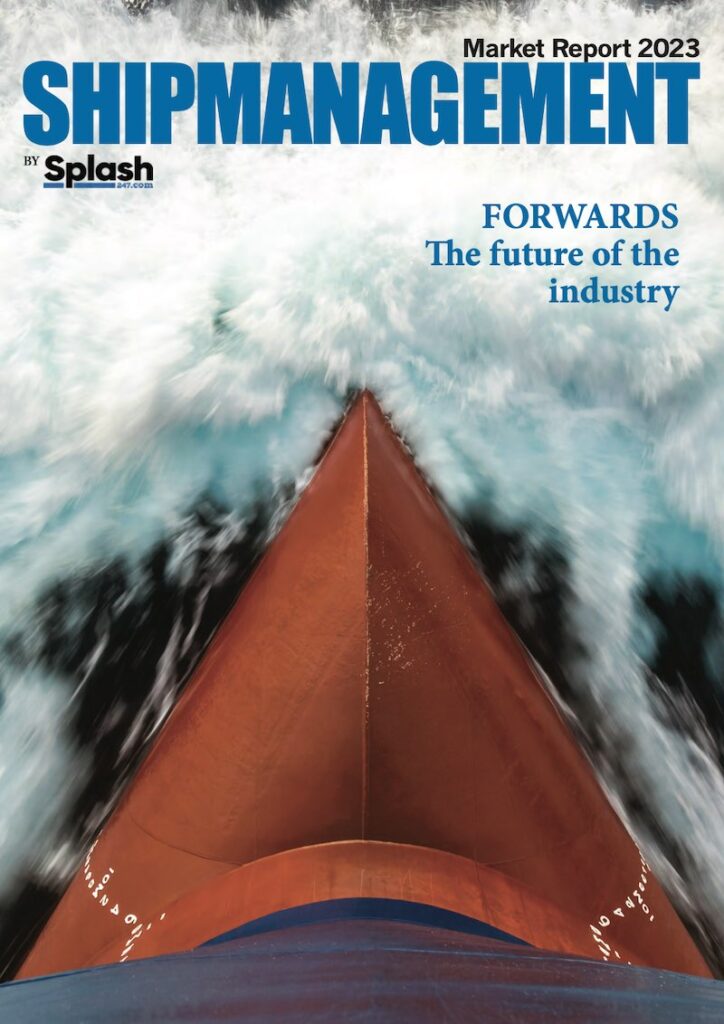‘Good ships, good times’

How to get owners and managers to agree on certain decent working conditions at sea. The latest instalment in our recently published shipmanagement magazine.
Steven Jones, founder of the Seafarers Happiness Index, reckons seafarers fall into three basic camps these days.
There are those lucky enough to work for good companies, with careers mapped out, mentors, support, good wages and conditions which make them feel good about themselves, what they do and how they do it. They can call home, message freely, and feel connected.
Below that halcyon level – that’s where things get trickier. At the bottom levels of the industry, in the dark corners, there’s thousands of crew in danger.
Above them is an “odd” part of the industry, according to Jones.
“These are the owners that on a good day can be pleasant enough, they may even seem to care,” Jones explains.
“They are the bipolar employers – who would be happy on one freight rate to buy some gym equipment or a new TV, but then on other days work their people too hard, and who pay only cursory lip service to standards. This is the biggest part of the industry, sadly.”
Now while managers talk a good game in terms of crew training and welfare, how can this become independent so managers are not held hostage by owners who aren’t willing to invest in this area? It is an issue that has become increasingly important in today’s ESG era.
Budget mindset rethink
“Managers are their worst enemies as they compete to drive budgets and fees to the lowest common denominator. That needs to change which requires both owners and managers to change their drivers,” says Pankaj Khanna, who heads up commercial manager Heidmar.
Tanuj Balani, a director at Asian marine compliance firm Stag Marine, urges for a mindset change in how owners and managers haggle over opex budget negotiations.
Crew training, welfare and auditing, if done as per industry requirements whether in-house or using third party auditing and training companies, should cost around 1% of the annual opex budget, and we see that even with this owners and managers included are negotiating it,” Balani says, hence why accidents continue to happen and to be repeated.
Pay and internet
Timely payment of wages and internet onboard are now the two most desired expectations of the crew, observes Vinod Sehgal, CEO and managing director of SeaQuest Shipmanagement. Every manager knows this, he says, but some owners turn a blind eye.
While the Maritime Labour Convention (MLC) was a “good step” in the right direction, Sehgal says it did not go far enough.
“This needs to be regulated by statutory bodies like IMO, ILO, etc instead of being left to individual companies,” Sehgal tells Splash.
Staff shortages
Taking good care of crew has never been more important, argues Ian Beveridge, CEO of Bernhard Schulte Shipmanagement (BSM), at a time where shipping is grappling with an increasing shortage of skilled seafarers and shore staff.
“Everyone involved must be aware of this. This challenge can only be solved together,” Beveridge says, advising that shipmanagers must define their own standards regarding seafarer welfare, and then engage with shipowner customers to achieve these.
Kishore Rajvanshy, managing director at Fleet Management, says it all comes down to a manager’s target clientele, pointing out that in shipmanagement everything starts with the crew.
“We have seen it time and again – high performance, strong commitment and loyalty are built from a sense of being valued and respected,” Rajvanshy says.
This neatly ties in with clear data produced by British vessel inspectors Idwal over the past year which clearly shows happier ships bring an improved vessel condition, and vice versa
“Good ships, good times,” says Jones from the Seafarers Happiness Index – now it is about transmitting that message to those footing the bills.
This article is one of many reports carried in our brand new 68-page Shipmanagement Market Report. Splash readers can access the full magazine for free by clicking here.


Good article. I like the “bipolar owner” idea, but often it’s just a question of the personalities in the manager’s offices. Some supers are nice people but some will default to bullying as soon as anything goes awry, and unlike British deputy Prime Ministers the manager’s super never gets found out and never gets fired. This happens with owners’ supers as well, but in a traditional company where the owner is on speaking terms with at least the top four on each ship the bullying super can be found out.
IT is the bully’s tool of oppression. The seafarer must stay on top of the AMOS and must interact with computer training simulations (dozing off over a can of lager pretending to watch a safety film is a thing of fifty years ago!) and generally submit to having every waking hour organised.
And there are owners who still won’t pay for broadband. If asked to name a body of men and women for whom Elon Musk is a true hero, it’s seafarers.
Long ago there was a British flag tramp outfit called The Britain SS Co. Ltd, also known as Watts, Watts & Co., which specialised in chartering its ships to liner companies. The ships were named after London suburbs and they were extremely famous for the excellence of their crew accommodation. They were seldom short of crew.
There was another British flag tramp and tanker company, established by the Kukulundis family, called London and Overseas Freighters, Ltd. Their nickname amongst seamen was “Loads of Fun”, no sarcasm, and they were seldom short of crew, either.